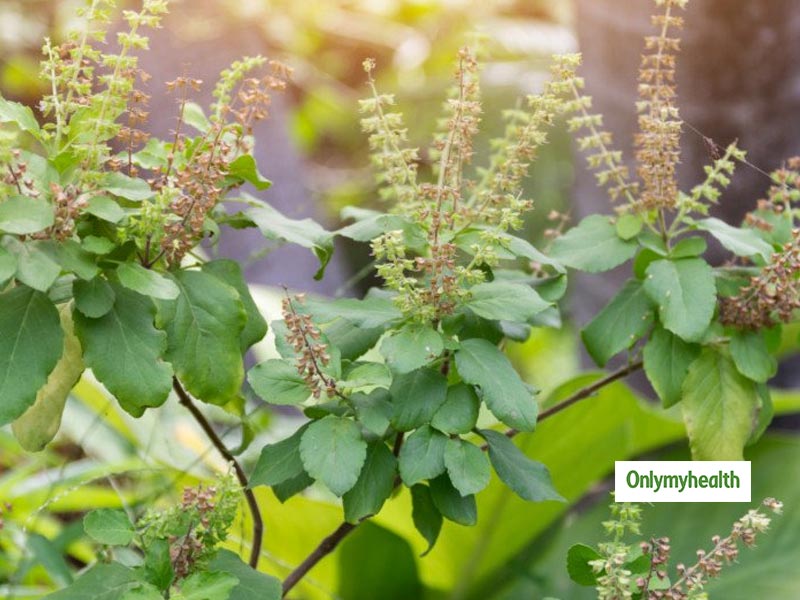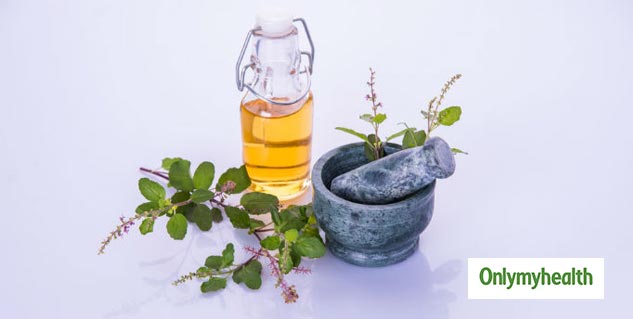
In the pursuit of a healthy lifestyle, managing cholesterol levels remains paramount. While traditional approaches often involve medication and dietary adjustments, emerging research sheds light on the potential of natural remedies, such as tulsi leaves, in combating high LDL cholesterol. Tulsi, also known as holy basil, not only adds flavour to culinary dishes but also harbours a myriad of health benefits, including its role in cholesterol management.
Table of Content:-
Talking along the lines, the editorial team of Onlymyhealth spoke to Dr Karuna Singh, Professor, Nutrition and Dietetics and Dean School of Allied Health Sciences - Sharda University to shed some light on the benefits of tulsi leaves in controlling LDL levels. Here is what she shared with us.
Benefits of Tulsi Leaves to Control LDL Levels
1. Mechanisms at Work
Tulsi leaves employ various mechanisms to tackle LDL cholesterol levels effectively. Firstly, the probiotics present in tulsi play a pivotal role in converting cholesterol into coprostanol, a form that the small intestine fails to absorb, leading to its excretion through faeces. This conversion process serves as a natural mechanism to reduce cholesterol absorption within the body, thereby contributing to lowered LDL levels.
Moreover, tulsi aids in enhancing faecal sterol excretion while concurrently inhibiting cholesterol biosynthesis. The presence of bile salt hydrolase (BSH) enzyme, produced by probiotics in tulsi, further facilitates the deconjugation of cholesterol, impeding its absorption by the small intestine. Through these intricate pathways, tulsi orchestrates a concerted effort to regulate LDL cholesterol levels.

Also Read: Doctor Lists Diseases Caused by Iodine Deficiency: Understanding the Risks and Solutions
Additionally, tulsi possesses the ability to modulate protein expression associated with cholesterol synthesis, thereby fostering a reduction in cholesterol levels. This multifaceted approach underscores the potency of tulsi in combating high LDL cholesterol and promoting cardiovascular health.
2. Support for Liver Function
The liver plays a pivotal role in cholesterol metabolism, influencing the production and elimination of LDL cholesterol from the bloodstream. Evidence suggests that tulsi supports liver function and health, thereby contributing to the regulation of LDL levels. By bolstering liver function, tulsi aids in optimising cholesterol metabolism, thereby mitigating the risk of heart disease associated with elevated LDL levels.
3. Anti-Inflammatory Properties
Chronic inflammation serves as a precursor to heart disease, exacerbating the accumulation of LDL cholesterol within the bloodstream. Tulsi, renowned for its anti-inflammatory properties, exerts a protective effect against inflammation, thereby indirectly lowering LDL cholesterol levels. By addressing the root cause of inflammation, tulsi emerges as a formidable ally in the battle against high LDL cholesterol.

Also Read: 5 Anti-inflammatory Teas Beneficial For Health
4. Lipid-Lowering Properties
Tulsi harbours lipid-lowering properties, effectively reducing blood levels of triglycerides, LDL cholesterol, and total cholesterol. Key compounds present in tulsi act by inhibiting enzymes responsible for cholesterol production, thereby curbing the synthesis of LDL cholesterol. Through this mechanism, tulsi offers a natural solution to cholesterol management, complementing existing therapeutic interventions.
5. Enhancement of Lipid Metabolism
By enhancing the activity of enzymes involved in lipid metabolism, tulsi exerts a profound impact on LDL cholesterol levels. This enhancement facilitates the breakdown of lipids and cholesterol, thereby contributing to the regulation of LDL cholesterol levels within the body. Furthermore, the fermentation of indigestible carbohydrates by probiotics in tulsi yields short-chain fatty acids (SCFAs), which stimulate the synthesis of high-density lipoprotein (HDL) or 'good' cholesterol. This dual action underscores the versatility of tulsi in promoting lipid metabolism and cholesterol regulation.
A Final Word
Tulsi leaves emerge as a potent natural remedy in the management of LDL cholesterol levels. Through its multifaceted mechanisms of action, tulsi not only reduces cholesterol absorption but also supports liver function, alleviates inflammation, and enhances lipid metabolism. However, it's essential to incorporate tulsi as part of a comprehensive approach to cholesterol management, which includes a healthy diet, regular exercise, and medical consultation. By harnessing the power of tulsi leaves, individuals can take proactive steps towards maintaining optimal cholesterol levels and safeguarding cardiovascular health.
Also watch this video
How we keep this article up to date:
We work with experts and keep a close eye on the latest in health and wellness. Whenever there is a new research or helpful information, we update our articles with accurate and useful advice.
Current Version